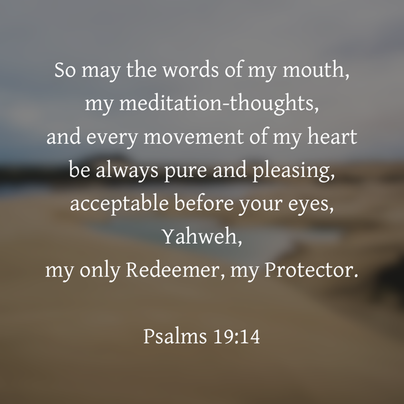|
Good morning!
We're so glad that you've joined us today!
When we were able to meet in person, we shared our joys and concerns together. Take some time to think about your last week. What brought you joy? What caused worry? If you would like to share, you can leave a comment on this post. When you are ready, use King David's Prayer of Praise below.
You are blessed, LORD, the God of Israel our father, forever and ever.
Yours, LORD, is the greatness, the power, the glory, the victory, and the majesty! For all that is in the heavens and in the earth is yours. Yours is the kingdom, LORD, and you are exalted as head above all. Both riches and honor come from you, and you rule over all; and in your hand is power and might; and it is in your hand to make great, and to give strength to all. Now therefore, our God, we thank you, and praise your glorious name.
This week's lesson is on Jonah 3.
The story of Jonah is one everyone seems to know. Jonah hated the Ninevites. He believed they deserved to be destroyed. It took a second calling for him to do what God told him to do. His time inside the great fish had taught him the price of disobedience. A pagan monarch’s response to God is more obedient than God’s own prophet. Throughout Scripture, we witness time and time again that God loves mercy. The story of Nineveh illustrates this in extreme fashion: the enemies of God’s own people were spared when they turned their hearts toward him. God’s intention for all humanity it to encounter his love and remain in it. The apostle Paul catalogued all of the forces incapable of separating God’s people from God’s love (Romans 8:38-39) No outside force can cause that separation But we can voluntarily cause it ourselves by rejecting his will as we become as the Ninevites had been. When we do so, repentance is the cure, as the Ninevites discovered. Today, we also should accept the reality that God’s work will not be limited by geopolitical lines. We see Jonah’s attitudes in both individuals and faith communities who fixate over which groups of sinners are too far beyond the reach of God’s love. God’s love will go everywhere. We can experience joy at the prospect, or we can resist this reality. Our attitude does not change what God will do for our enemies, but it will change how we react to his blessing those we would curse. We can celebrate that God is “a gracious and compassionate God, slow to anger and abounding in love” And in the face of divine kindness, we, like the citizens and rulers of ancient Nineveh, can repent. Henry Blackaby says, “It is one thing to say you’re sorry; it is another to live out your repentance. The truest sign of genuine repentance is a changed life.”
Prayer: God, you disregard our borders and share your love wherever you please. We praise you for this because we are dependent on your mercy. In Jesus’ name we pray Amen.
Thought to remember: No human boundaries limit God’s grace.
Benediction
This week's benediction is from the Passion Translation.
Next week we will be starting a new quarter, which will be on the topic Confident Hope. Next week's lesson will be on Matthew 6:25-34. If you would like the daily devotional readings, you can find them in the document below.
0 Comments
Leave a Reply. |
AuthorWe are a small, rural Presbyterian church in southwestern Pennsylvania. Archives
July 2024
Categories
All
|
||||||



 RSS Feed
RSS Feed